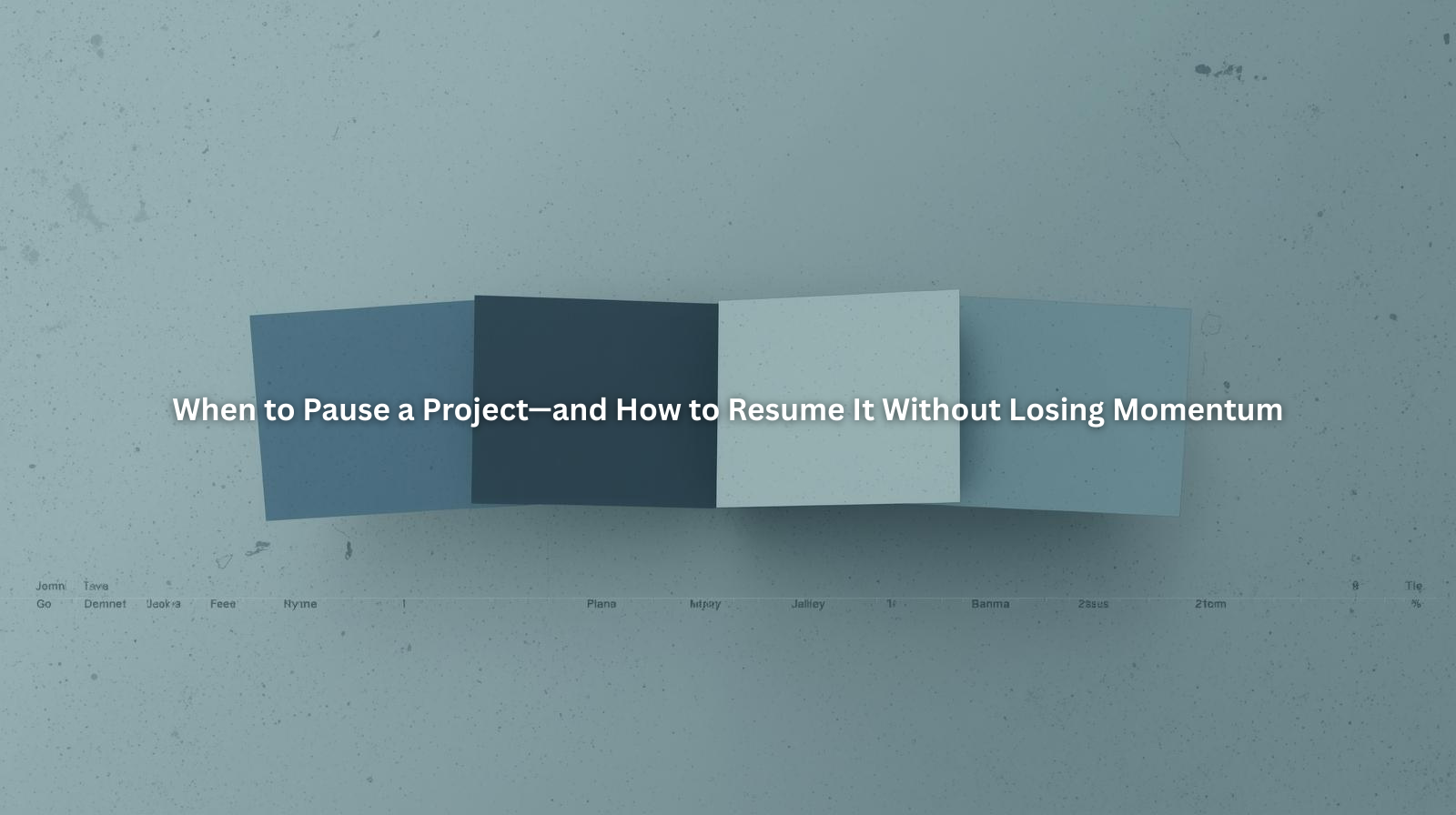Tax Season Survival Guide for Self-Employed Professionals: How to Stay Organized Year-Round

Table of Contents
- Why Tax Season Feels Overwhelming for Self-Employed Professionals
- The Key to a Stress-Free Tax Season: Year-Round Organization
- Essential Documents Every Self-Employed Person Needs
- Smart Strategies for Keeping Tax-Related Records in Check
- Common Tax Deductions for Self-Employed Professionals
- Understanding Quarterly Tax Payments and Deadlines
- Avoiding Common Mistakes That Lead to Tax Headaches
- How ProjectBook.co Helps You Stay Organized
- Final Thoughts
Why Tax Season Feels Overwhelming for Self-Employed Professionals
Unlike traditional employees who receive W-2s and have taxes automatically deducted, self-employed professionals are responsible for tracking income, expenses, and filing quarterly taxes. Without a structured system, tax season can feel like a mad scramble to find invoices, client payments, and deductible expenses.
The problem? Many freelancers and business owners rely on disorganized spreadsheets, scattered emails, and last-minute tax prep, leading to unnecessary stress and potential mistakes. Missing documents or failing to track payments properly could result in higher tax liabilities or IRS penalties.
The Key to a Stress-Free Tax Season: Year-Round Organization
The best way to make tax season easier? Stay organized throughout the year. Rather than frantically searching for documents in April, create simple workflows that keep everything accessible, categorized, and up to date.
Here’s what you can do:
- Consistently track projects and payments – Know exactly what’s been completed and what’s outstanding.
- Store client contracts and invoices in one place – This helps with verifying income and deductions.
- Use a dedicated system for document organization – No more digging through emails and folders.
- Create a tax checklist – Keep track of important forms, deductions, and deadlines.
Essential Documents Every Self-Employed Person Needs
To prepare for tax season efficiently, keep these documents organized:
- Client invoices and payment records – Proof of income is essential for tax filing.
- Contracts and agreements – Helps clarify work scope and payments.
- Receipts for business expenses – Essential for tax deductions.
- 1099 forms (if applicable) – For freelancers working with companies that require tax reporting.
- Bank statements and financial summaries – Used for tax calculations and audits.
- Home office expense records – If you work from home, these records can be useful for deductions.
Smart Strategies for Keeping Tax-Related Records in Check
Staying on top of your tax-related records doesn’t have to be time-consuming. Here are some simple strategies:
- Create a habit of organizing documents weekly – A small time investment now saves hours later.
- Use cloud storage for contracts and invoices – Ensures documents are accessible anytime.
- Categorize income and expenses by project – Makes it easier to see how much you’ve earned from each client.
- Set quarterly tax reminders – Prevents surprises and missed payments.
- Keep digital and physical copies – In case of audits or lost files, it’s good to have backups.
Common Tax Deductions for Self-Employed Professionals
One of the biggest benefits of being self-employed is the ability to write off business expenses to lower taxable income. Here are some of the most common deductions:
- Home office deduction – If you have a dedicated workspace in your home, you may be able to deduct part of your rent or mortgage.
- Business software & tools – Subscriptions to project management tools, design software, and business apps.
- Marketing & advertising – Website hosting, paid ads, branding expenses.
- Professional development – Online courses, workshops, and industry memberships.
- Office supplies & equipment – Computers, desks, printers, and other business-related tools.
- Internet & phone bills – If used for business purposes, a percentage can be deducted.
Understanding Quarterly Tax Payments and Deadlines
Unlike traditional employees, freelancers and self-employed professionals must pay estimated taxes quarterly to avoid penalties. These deadlines are typically:
- April 15 – Q1 taxes due
- June 15 – Q2 taxes due
- September 15 – Q3 taxes due
- January 15 (following year) – Q4 taxes due
To calculate estimated payments, keep track of total income, deductions, and business expenses throughout the year. A tax professional or accounting software can help ensure accuracy.
Avoiding Common Mistakes That Lead to Tax Headaches
Many self-employed professionals make common mistakes that can lead to tax penalties or missed deductions. Here’s how to avoid them:
- Not separating business and personal finances – Always use a dedicated business account.
- Failing to track income correctly – Every payment should be documented and categorized.
- Missing deduction opportunities – Keep detailed records of all business-related expenses.
- Ignoring quarterly tax payments – Avoid IRS penalties by setting up automatic reminders.
- Not keeping copies of receipts and invoices – Digital storage can prevent loss of important documents.
Frequently Asked Questions (FAQ)
What expenses can I deduct as a self-employed professional?
You can deduct home office expenses, business software, marketing costs, professional development, office supplies, and portions of internet and phone bills used for business.
How do I track income and expenses without an accounting tool?
Using a client and project management system like ProjectBook.co helps organize invoices, contracts, and client records to ensure you have a clear financial picture.
When are quarterly taxes due?
Quarterly tax deadlines are April 15, June 15, September 15, and January 15 of the following year.
How can I stay organized for tax season year-round?
Develop weekly organization habits, use cloud storage for receipts, and set quarterly tax reminders to avoid last-minute stress.
How ProjectBook.co Helps You Stay Organized
While ProjectBook.co doesn’t handle financial tracking, it plays a crucial role in helping self-employed professionals keep business operations structured and tax-ready.
Why ProjectBook.co is Essential for Self-Employed Professionals:
✅ Client & Project Management – Keep track of project timelines, invoices, and client work effortlessly.
✅ Centralized Document Storage – Store contracts, agreements, and project notes in one place.
✅ Task Tracking & Organization – Ensure all client projects are documented, keeping income records clear.
✅ A Simple System That Works Year-Round – Stay on top of projects so nothing gets lost in the tax rush.
By using ProjectBook.co, self-employed professionals can easily track projects, organize client records, and store essential documents, ensuring a smoother tax season with minimal stress.
Final Thoughts
Tax season doesn’t have to be overwhelming. With the right organizational strategies and tools, self-employed professionals can stay prepared, reduce last-minute scrambling, and focus on growing their business.
By leveraging ProjectBook.co to manage client records, invoices, and projects, freelancers and small business owners can keep everything in check—without the chaos. Start organizing your business today with ProjectBook.co!


